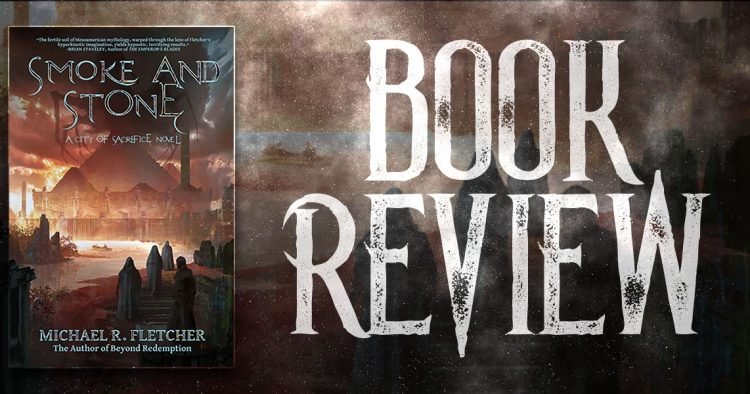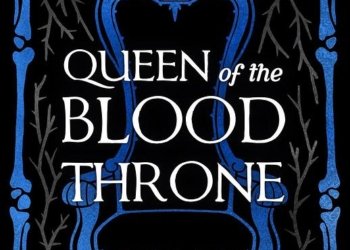No products in the cart.
Smoke and Stone by Michael R Fletcher (City of Sacrifice #1)
“Humanity brought itself to the brink of utter destruction and the gods built this bastion, took in the few survivors, and sheltered them from the world they’d killed.”
The walled city of Bastion has existed for twenty-five thousand years. The whole human race resides inside this city of stone as defence from the apocalyptic desolation beyond. Walls separate each of the concentric circles that make up Bastion, and warrior priests jealously watch the passageways between them. The outer ring is made up of the farmers; it is the most populous area but also the class that is most oppressed. Each ring that is nearer the centre has a bit more liberty, a bit more wealth, and a bit more proximity to the gods. This is the literalest possible example of a class divide.
Only a select few people escaped the gods’ war at the time Bastion was being created. These deities rose to prominence in the city’s pantheon and came to represent the foundational beliefs of humanity. Although priests are sent out to help the populace live holy lives, not everyone supports the way these traditions are perpetuated. Drugs are the fire that ignites the power conflagration in this metropolis. Whatever correlates to a DMT-laced cocktail of psilocybin and LSD in the book’s lexicon of hallucinogens and botanicals allows the user to reach a lucid dream-state or perhaps communicate with their god. Depending on your ally, either smoke or stone can be used to draw power and abilities. As you may have seen by this point, the world-building is both amazing and incredibly detailed.
The way the characters are portrayed for such a large cast is even more astounding. This novel is told from the perspectives of just two characters: Akachi, a brand-new pastor of a dilapidated church in a dangerous neighbourhood, and Nuru, a gang member and street sorcerer struggling to survive in a society where displaying any sort of uniqueness might result in death. Throughout the novel, we switch stories and learn a lot about what motivates them both. However, we also come to know each crew well enough that I had a close connection to several of these auxiliary characters. We all know that everyone will have a happy ending because this is a Michael Fletcher book, right? Right. At one point there was so much blood I think some spilled off the page and stained my hands red.
Smoke and Stone maintains Fletcher’s status as one of my favourite authors, despite the fact that his gloomy tales undoubtedly aren’t for everyone. It is a sombre story with a lot of strange concepts and the distinct brand of insanity that only Fletcher can offer. Bring on the follow-up.
The Review
Smoke and Stone
9 Score
Smoke and Stone is a book I regret not buying sooner. For a good while after finishing Empires of Dust, I kind of vacillated between novels, not really able to find a comfortable home in one world or another. Then I started this. And finished it in a week.
PROS
- A Grimdark fantasy.
- Tragic Grimdark at its Best.
- A dark tale with unconventional ideas.
- Holy Smoke & Stone!
CONS
- Just Average.
- Mediocre and programmatic.
- This is not Grimdark.











